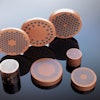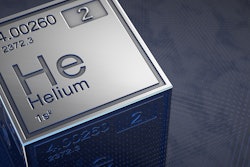Canadian-based Pulsar Helium has tapped into a helium cache in Minnesota yielding helium contents up to 13.8% -- good news for MR imaging.
"Keeping an MRI's magnetic current superconductive requires helium," Pulsar noted in an announcement, adding that the MRI market value worldwide is forecast to increase to over $12.1 billion by 2030.
Earlier this year, experts expressed concern about the domestic supply of helium for cooling MRI scanners. Pulsar focuses on sustainable and reliable sources of primary helium rather than helium produced as a byproduct of hydrocarbons such as liquid natural gas, according to the firm. It is currently involved in two drilling projects: its Topaz project in Minnesota and its Tunu project in Greenland.
"Helium exploration and development is a nascent industry, brought into existence by a sudden and significant supply deficit that has persisted for over a decade and shows no sign of ending," the company said. "Pulsar exists to develop its helium assets to the point of potential production with the objective of bringing stability and supply diversity to the industry."




















